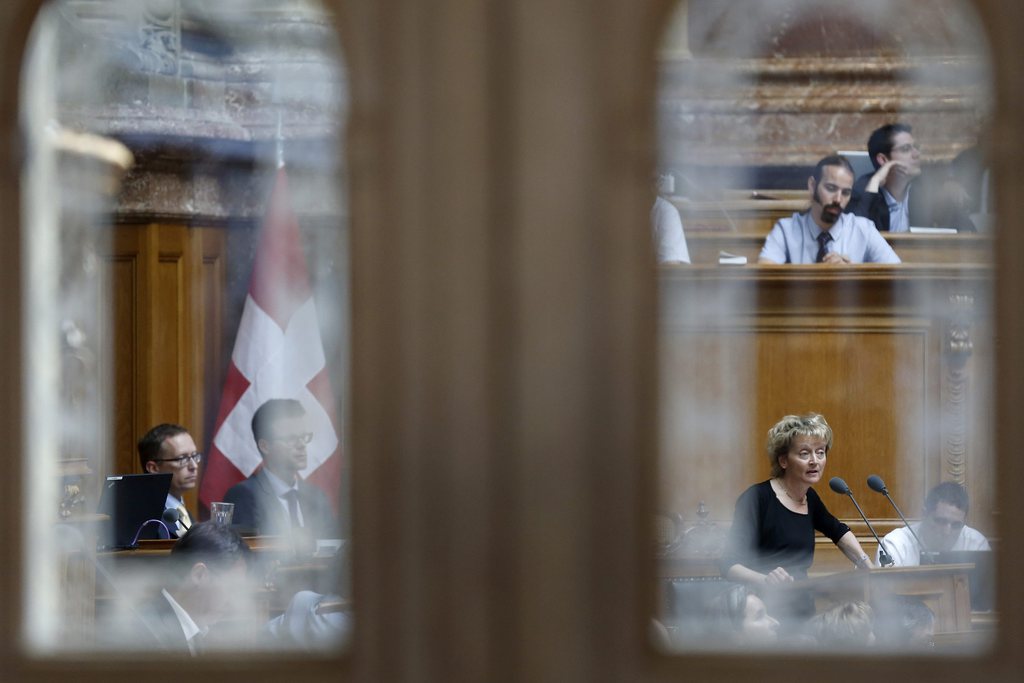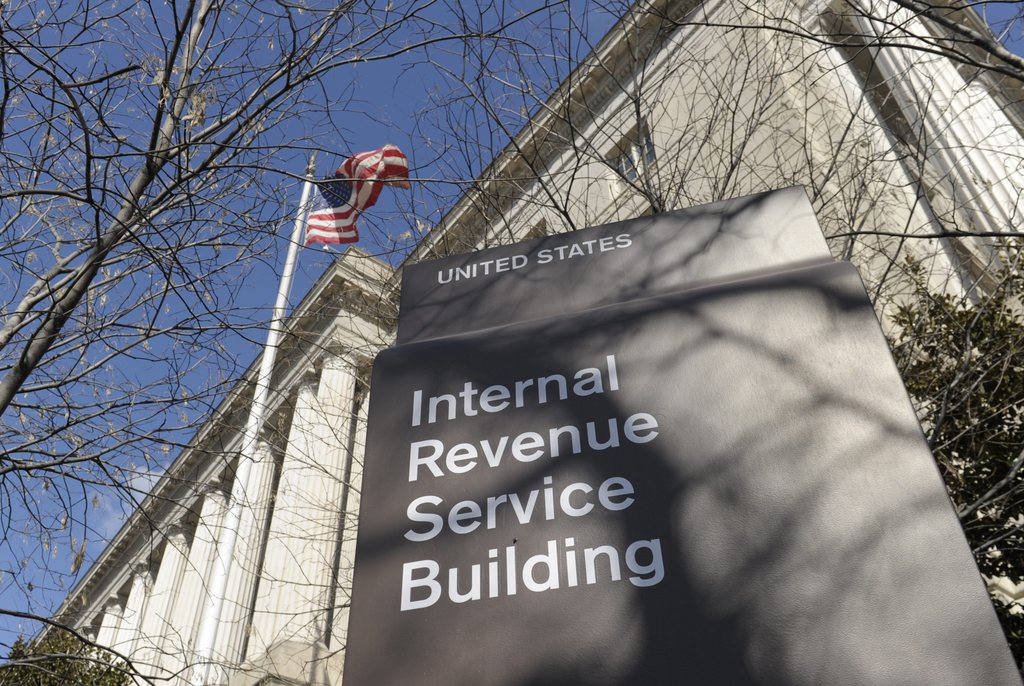Parliament vote stalls US tax settlement

The House of Representatives has clearly rejected a planned law allowing Swiss banks to hand over data of suspected tax dodgers to the United States. Discussions in parliament are continuing on Wednesday.
A majority of opponents on Tuesday argued the law violated Swiss sovereignty and didn’t provide either enough information about possible consequences or assurances from the US to protect bank employees.
The result of the vote – 126 against, 67 in favour, with two abstentions – dealt a blow to the cabinet and Finance Minister Eveline Widmer-Schlumpf.
The bill now returns to the Senate, which had approved the deal last week.
The rightwing Swiss People’s Party, the centre-right Radical Party and most centre-left Social Democrats voted against the bill in the house and demanded the government take a decision without parliament.
They said the planned deal between Swiss banks and the US authorities would prompt further demands by other countries.
“The draft law is an act of surrender,” said People’s Party parliamentarian Christoph Blocher. He added the banks under investigation would face penalties but they could bear them without being put out of business.
Supporters of the law, the centrist Christian Democrats, the Conservative Democrats, the Liberal Greens as well as the centre-left Greens, argued it was better to accept the bill to minimise the risk of escalating the tax row with the US.
They said all banks and many experts had come out in favour of a law which allowed a settlement of suspected cases of tax evasion of the past.
A rejection of the deal was undermining the stability of the Swiss banking centre and putting jobs at risk, said Christian Democrat Lucrezia Meier-Schatz.

More
Swiss take first step to end US tax spat
Banking secrecy
Widmer-Schlumpf had unsuccessfully tried to convince parliamentarians that only a draft law gave Swiss banks the option of taking part in a unilateral offer by the US justice department to settle their cases without violating Swiss banking secrecy rules.
“A rejection of the bill will lead to a difficult situation, causing a threat to the economy and undermining the reputation of Switzerland’s financial centre,” she warned.
The US authorities were about to indict further Swiss banks, she added.
Over the past few years at least 14 banks have been under investigation by the US – two of them were forced to close their doors for business.
She added that the cabinet would continue to defend Swiss law against attacks, but it was not willing to tolerate breaches of Swiss regulations.
Declarations
The bill returned to the Senate on Wednesday morning and parliamentarians reiterated their support for the urgent law which will allow the Swiss banks to cooperate with the US justice system.
The ping-pong match continues with the other chamber, the House of Representatives, reconsidering the matter in the afternoon.
Concerned about a potential escalation of the row with Washington, a Senate committee on Tuesday prepared a formal statement signaling its willingness to end the high-profile legal standoff.
2009: Switzerland’s biggest bank UBS agrees to turn over more than 4,450 client names and pay a $780 million fine after admitting to criminal wrongdoing in selling tax-evasion services to wealthy Americans.
July 2011: Second biggest bank, Credit Suisse, is under criminal investigation by US. The bank later makes a provision for a potential fine of CHF295 million.
February 2012: US justice department indicts Wegelin, Switzerland’s oldest private bank, on charges that it enabled wealthy Americans to evade taxes on at least $1.2 billion hidden in offshore accounts.
June 2012: US treasury department reaches a tentative agreement with Switzerland to help banks comply with US tax evasion regulations
June – December 2012: Bank Julius Baer and global bank HSBC both hand over details of employees to the US. Private bank Pictet confirms it is also under investigation by the US. Two bankers and one former employee of Zürcher Kantonalbank charged by US, accused of helping US clients avoid taxes.
January 2013: Wegelin private bank shuts its doors, following a guilty plea to charges of helping wealthy Americans evade taxes through secret accounts. It agrees to pay nearly $58 million in fines on top of $16.3 million in forfeitures already obtained by the authorities.
May 2013: Swiss government presents bill to parliament that would let Swiss banks hand over internal information to US to avoid threatened criminal charges – though the banks still face fines likely to total billions of dollars.
The bill aims to save the banks from heavier punishment in the United States for helping wealthy tax cheats, by sidestepping its secrecy laws to let bankers disclose data to US prosecutors.
June 2013: Parliament begins discussions on banking deal.

In compliance with the JTI standards
More: SWI swissinfo.ch certified by the Journalism Trust Initiative




You can find an overview of ongoing debates with our journalists here. Please join us!
If you want to start a conversation about a topic raised in this article or want to report factual errors, email us at english@swissinfo.ch.